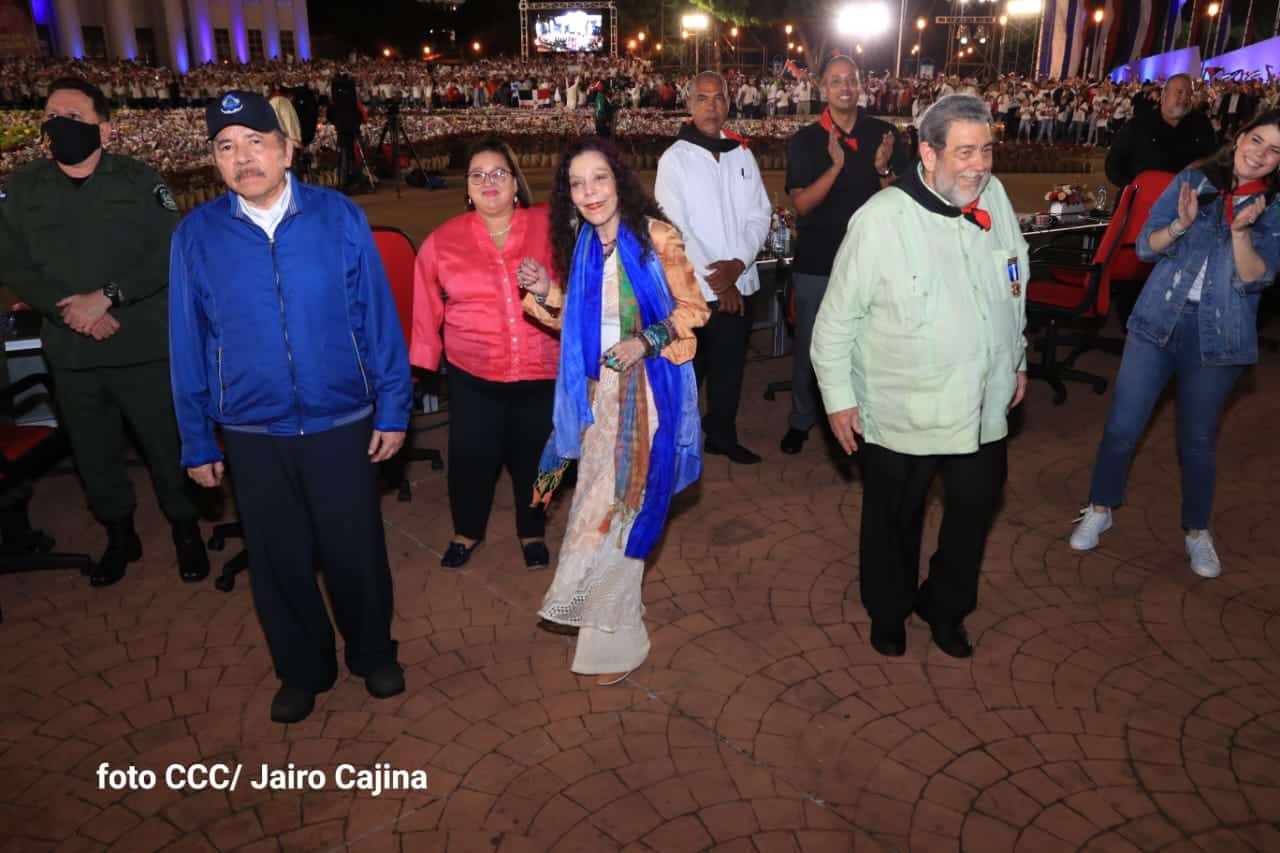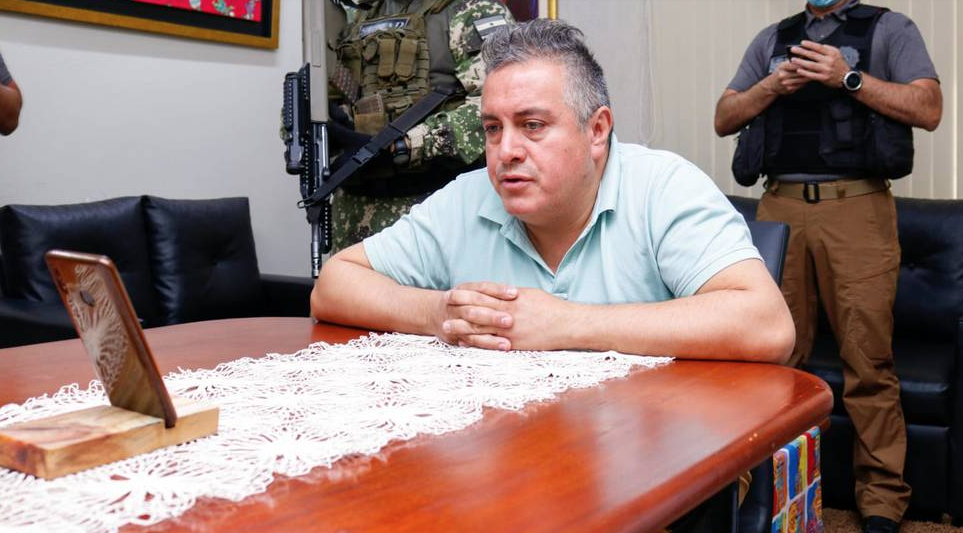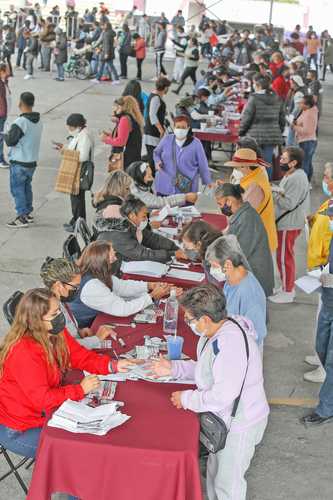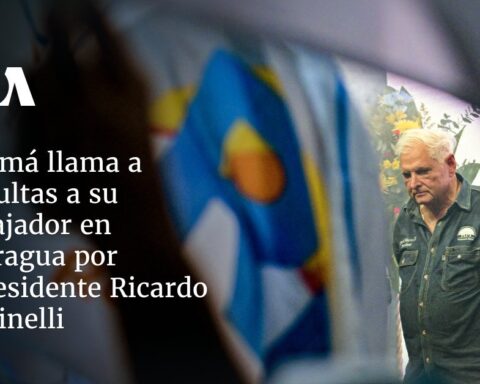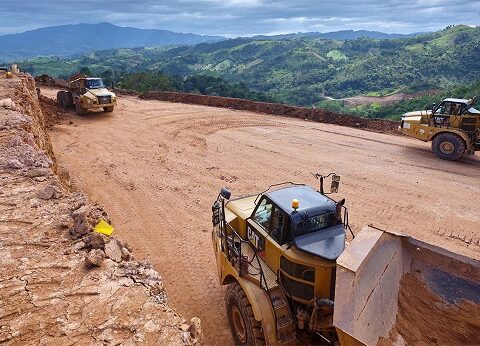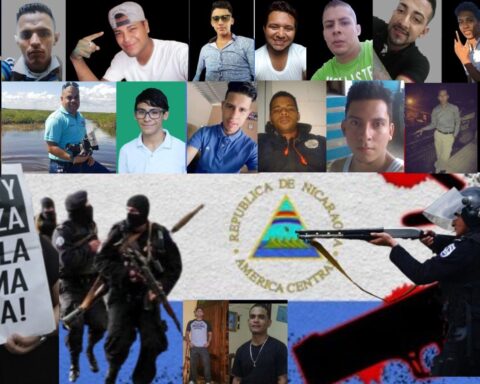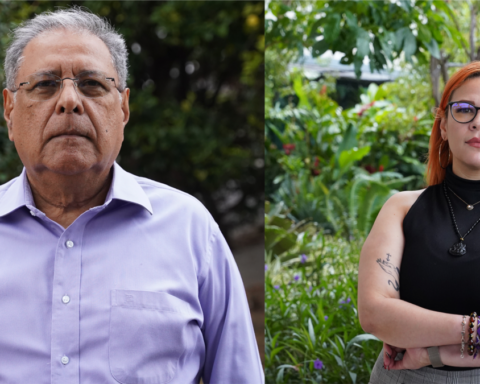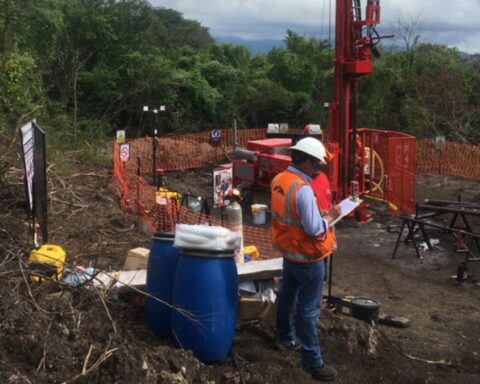While the secretary general of the Sandinista National Liberation Front (FSLN), Daniel Ortega, has maintained a hostile speech against the United States and the international community, which demands the return of democracy and the release of political prisoners, among the bases of That party circulated this month through social networks an infographic prepared by official media in which they present the 2018 massacre as a milestone in their history.
The timeline begins in 1927 when Sandino founded the Army for the Defense of National Sovereignty, the departure of the US troops, the execution of Somoza at the hands of the poet Rigoberto López Pérez, what they maintain was a change of cycle from “darkness to the light”. There is also the founding of the FSLN, the triumph of the revolution, the government from below between 1990 and 2006, and finally “the victory of the people against the coup conspiracy.”
On July 19, after the commemoration of the 43rd anniversary of the fall of Somoza, Vice President Rosario Murillo said that they never tire of celebrating those who have left them that “free homeland” and feel they have the duty to defend it, and “not allowing hate to return here,” he said in reference to the civic protests of 2018, crushed with the repression of the State, carried out by police and paramilitaries.
The speech of Ortega and Murillo is questioned as an attempt to “falsify history”, while several of the protagonists of the revolution are today in exile. The ruling party highlights the message on its social networks that the country lives in “normality”, but they face their worst wear and national rejection and even last July 19 they did not dare to convene a mass act to celebrate the 39th anniversary of the Sandinista revolution.
Ivania Alvarez, member of the citizen observatory Open Ballot Boxes, explained that the FSLN tries to hide the complaints from the international community that human rights violations occurred in Nicaragua, 355 murders were recorded and the State was involved, according to reports from the Inter-American Commission on Human Rights (IACHR). .
The Ortega regime has no current events to highlight, which is why it always goes back to the guerrilla era, to the past, Álvarez points out. It adds that the supposed “victory” against the coup that they so often raise is not real because political violence persists, whose levels increase on commemorative dates of the civic struggle, mainly in April, when the protests began in 2018 in which thousands of citizens asked for peacefully a change of government.
Former opposition deputy Eliseo Núñez told CONFIDENCIAL last july 24 that Ortega in his speech on July 19 seems trapped in time and resorts to “telling old stories”, because he got stuck in the eighties.
“His only reference is having defeated the Somoza dictatorship and then we see that he constantly goes back to that Sandinista revolution that he was part of one day,” Núñez said then.
State violence persists against citizens
While in recent weeks the relatives of the political prisoners denounced the worsening of the state of greetings of the inmates, the Blue and White Monitoring recorded, in the week of July 18 to 24, 26 incidents related to human rights violations, including threats ( 7), harassment (6), assaults (5), raids (13), among others.
The citizen observatory Open Ballot Boxes reported that at least 385 violent political events occurred in the first six months of 2022. April was the month with the greatest abuses in Nicaragua.
According to the report presented this week, 164 violent events were registered in April, an amount higher than the 69 registered in June, the 60 in May, or the 49 in February, the other more hectic months.
For Álvarez, the regime uses the little militancy it has left, including state workers, who are forced to participate in party activities and share official propaganda. However, the best demonstration that Nicaraguans do not believe in the regime’s discourse is the migratory crisis that the country is going through and that has upset even the bases of the Sandinista Front, he points out.
“This migratory crisis is like proof that ordinary citizens, the militants, we are all clear about what happened in Nicaragua and we know that the change in Nicaragua goes through the renewal of the authorities…I do not think that they -the Sandinista Front – They are believing that the people took the story of the coup d’état, it may be that some historical militants…”, Álvarez maintained. In the last four years, more than 200,000 Nicaraguans have left the country, pushed by the socio-political crisis and the worsening of the economic crisis.
Since 2018, the regime of Daniel Ortega has tried to “sell” its version of the repression before international organizations, but with the exception of its historical allies—Cuba and Venezuela—, no country or international organization has found evidence of it, on the contrary, the The report of the Interdisciplinary Group of Independent Experts (GIEI) recommended that Ortega and the police leadership be investigated for committing crimes against humanity.
The General Assembly of the Organization of American States (OAS) also declared the results of the 2021 general elections illegitimate, which allowed Ortega to stay in power for the fourth consecutive term, with his main competitors imprisoned, accused of treason.
However, in an attempt to sell a false normality, every weekend, Vice President Rosario Murillo announces thousands of activities coordinated by various state entities: walks, beauty contests, fairs, games, etc. For example, this Friday she assured that 6,600 activities would be carried out that would become a sounding board for the presidential couple’s propaganda.

